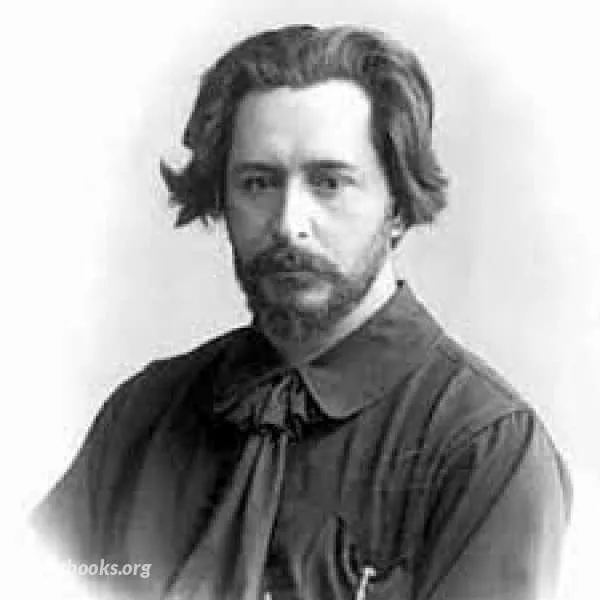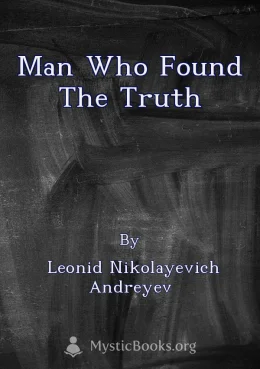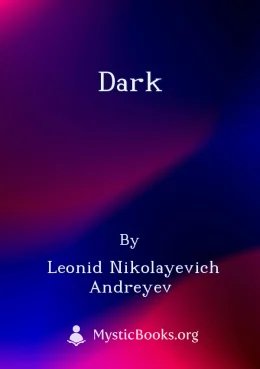
Timeline
Title
Country/Nationality
Leonid Nikolayevich Andreyev
Leonid Nikolaievich Andreyev was a Russian playwright, novelist and short-story writer, who is considered to be a father of Expressionism in Russian literature. He is regarded as one of the most talented and prolific representatives of the Silver Age period. Andreyev's style combines elements of realist, naturalist, and symbolist schools in literature. Of his 25 plays, his 1915 play He Who Gets Slapped is regarded as his finest achievement.
Born in Oryol, Russia within a middle-class family, Andreyev originally studied law in Moscow and in Saint Petersburg. His mother hailed from an old Polish aristocratic, though impoverished, family, while she also claimed Ukrainian and Finnish ancestry. He became police-court reporter for a Moscow daily, performing the routine of his humble calling without attracting any particular attention. At this time he wrote poetry and made a few efforts to publish it but was refused by most publishers. In 1898 his first short story, "Bargamot and Garaska" ("Баргамот и Гараська"), was published in the "Kurier" newspaper in Moscow. This story came to the attention of Maxim Gorky who recommended that Andreyev concentrate on his literary work. Andreyev eventually gave up his law practice, fast becoming a literary celebrity, and the two writers remained friends for many years to come. Through Gorky, Andreyev became a member of the Moscow Sreda literary group, and published many of his works in Gorky's Znanie collections.
Andreyev's first collection of short stories and short novels (повести) appeared in 1901, quickly selling a quarter-million copies and making him a literary star in Russia. In 1901 he published "Стена" ("The Wall"), and in 1902, "В тумане" ("In the Fog") and "Бездна" ("The Abyss,") which was a response to "The Kreutzer Sonata" by Leo Tolstoy. These last two stories caused great commotion because of their candid and audacious treatment of sex. From 1898-1905 Andreyev published numerous short stories on many subjects, including life in Russian provincial settings, court and prison incidents (where he drew on material from his professional life), and medical settings. His particular interest in psychology and psychiatry gave him an opportunity to explore insights into the human psyche and to depict memorable personalities who later became classic characters of Russian literature ("Thought," 1902).
During the time of the first Russian revolution Andreyev participated actively in the social and political debate as a defender of democratic ideals. Several of his stories, including "The Red Laugh" ("Красный смех", 1904), Governor ("Губернатор", 1905) and The Seven Who Were Hanged ("Рассказ о семи повешенных", 1908), captured the spirit of this period. Starting from 1905 he also produced many theater dramas including The Life of Man (1906), Tsar Hunger (1907), Black Masks (1908), Anathema (1909), and The Days of Our Life (1909). The Life of Man was staged by both Konstantin Stanislavsky (with his Moscow Art Theatre) and Vsevolod Meyerhold (in Saint Petersburg), the two main highlights of Russian theatre of the twentieth century, in 1907.
Andreyev's works of the post-1905 revolution period often represent the evocation of absolute pessimism and a despairing mood. By the beginning of the second decade of the century he began losing fame as new literary powers such as the Futurists were fast arising.
Andreyev's most well known work, the play He Who Gets Slapped, was completed in August 1915, just two months before its world premiere at the Moscow Art Theatre on 27 October 1915. A critically successful Broadway production, using an English language translation of the original Russian by Gregory Zilboorg, was staged in 1922. The work has been adapted into several films, a novel, an opera, and a musical, and is his most performed play internationally.
Aside from his political writings, Andreyev published little after 1915. In 1916, he became the editor of the literary section of the newspaper "Russian Will." He later supported the February Revolution, but foresaw the Bolsheviks' coming to power as catastrophic. In 1917, he moved to Finland. From his house in Finland he addressed manifestos to the world at large against the excesses of the Bolsheviks. Idealist and rebel, Andreyev spent his last years in bitter poverty, and his premature death from heart failure may have been hastened by his anguish over the results of the Bolshevik Revolution. His last novel, Satan's Diary, was finished a few days before his death.
A play, The Sorrows of Belgium, was written at the beginning of the War to celebrate the heroism of the Belgians against the invading German army. It was produced in the United States, as were the plays, The Life of Man (1917), The Rape of the Sabine Women (1922), He Who Gets Slapped (1922), and Anathema (1923). A popular and acclaimed film version of He Who Gets Slapped was produced by MGM Studios in 1924. Some of his works were translated into English by Thomas Seltzer.
Poor Murderer, an adaptation of his short story Thought made by Pavel Kohout, opened on Broadway in 1976.
He was married to Alexandra Veligorskaia, a niece of Taras Shevchenko. She died of puerperal fever in 1906. They had two sons, Daniil Andreyev, a poet and mystic, author of Roza Mira, and Vadim Andreyev. In 1908 Leonid Andreyev married Anna Denisevich, and decided to separate his two little boys, keeping the elder son, Vadim, with him and sending Daniil to live with Aleksandra's sister. Vadim Andreyev became a poet. He lived in Paris.
Books by Leonid Nikolayevich Andreyev

The Seven Who Were Hanged
The Seven Who Were Hanged is a 1908 novella by Russian author Leonid Andreyev. The book is believed to have influenced the assassins of Archduke Franz Ferdinand in 1914.

Satan's Diary
In "Satan's Diary", Andreyev summoned up his boundless disillusionment in an absorbing satire on human life. Fearlessly and mercilessly he hurled the falsehoods and hypocrisies in the face of life. He portrayed Satan coming to this earth to amuse him...

The Red Laugh
It explores the darkest corners of the human psyche. Set in the early 20th century, the book tells the story of a man who is haunted by a recurring nightmare that drives him to the brink of madness. Originally published in 1904, "The Red Laugh" has...

Man Who Found the Truth
The Man Who Found the Truth is a psychological drama that delves into the complexities of guilt, truth, and the human psyche. It explores the story of an old man, imprisoned for a lifetime for the supposed murder of his family. Through his compelling...

Little Angel and Other Stories
This collection of short stories by Leonid Andreyev showcases his distinctive style of psychological realism and philosophical exploration. Known for his stark portrayal of human emotions and his exploration of existential themes, Andreyev's storie...

Dark
Leonid Andreyev's novella "The Dark" delves into the psychological complexities of a desperate young man seeking refuge in a brothel to evade arrest. He is a 'terrorist and nihilist,' defined by his internal conflict and a sense of despair. The stor...

Nouvelles
This collection of short stories by Leonid Andreyev, translated by Serge Persky, reveals the author's characteristically dark and introspective style. Andreyev, often likened to Edgar Allan Poe, delves into themes of existential angst, societal disil...

Мелкие рассказы (Small Stories)
A collection of short stories by Leonid Nikolayevich Andreyev, a Russian writer and playwright. The stories explore themes of existentialism, nihilism, and the human condition. They are known for their dark and pessimistic tone, and their exploration...

Joch des Krieges
Ein ergreifender Anti-Kriegs-Roman in Tagebuchform, der die Schrecken des Ersten Weltkriegs aus der Perspektive der Zivilbevölkerung schildert. Der Autor Leonid Andreyev zeigt eindrucksvoll die sinnlosen Leiden, die der Krieg über unschuldige Mensche...